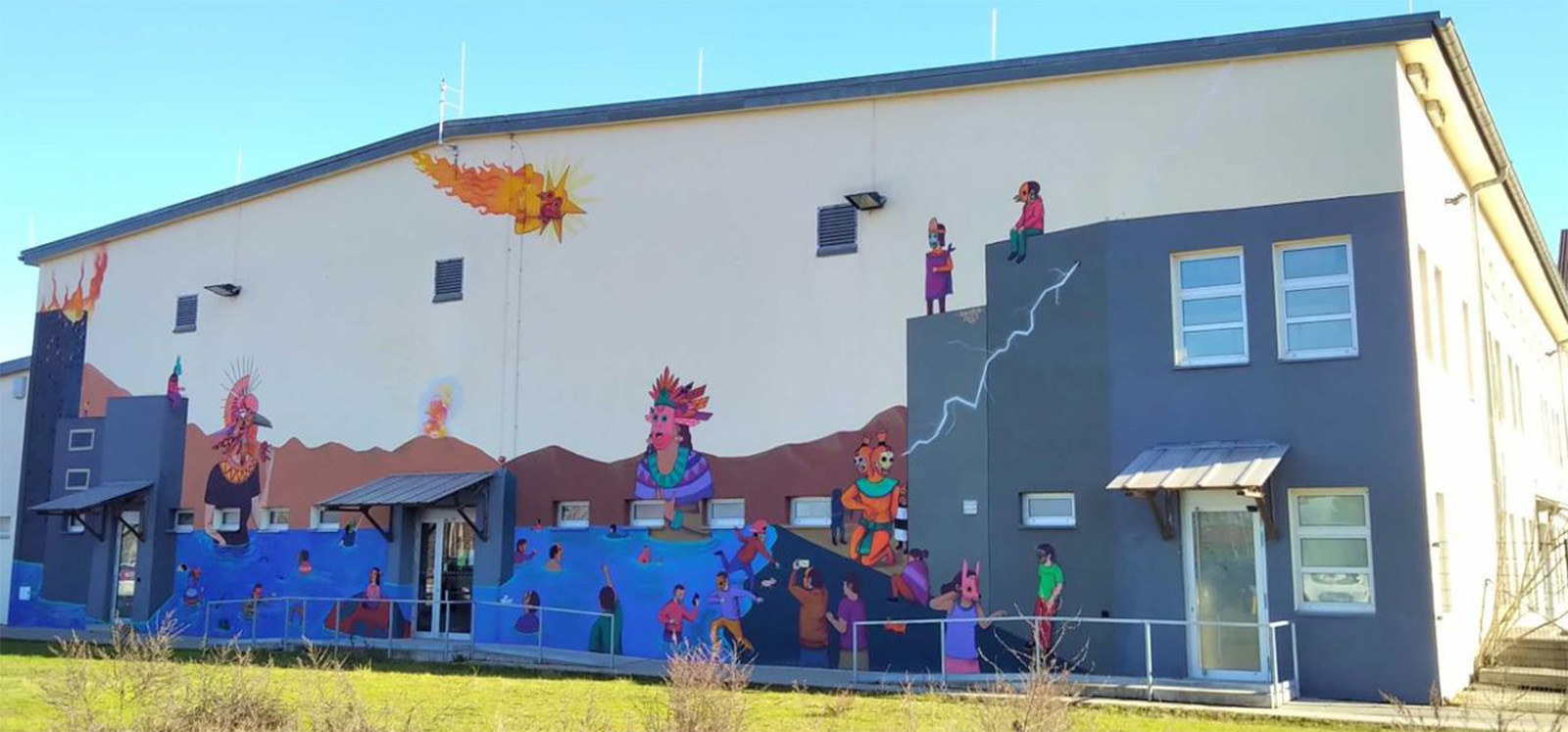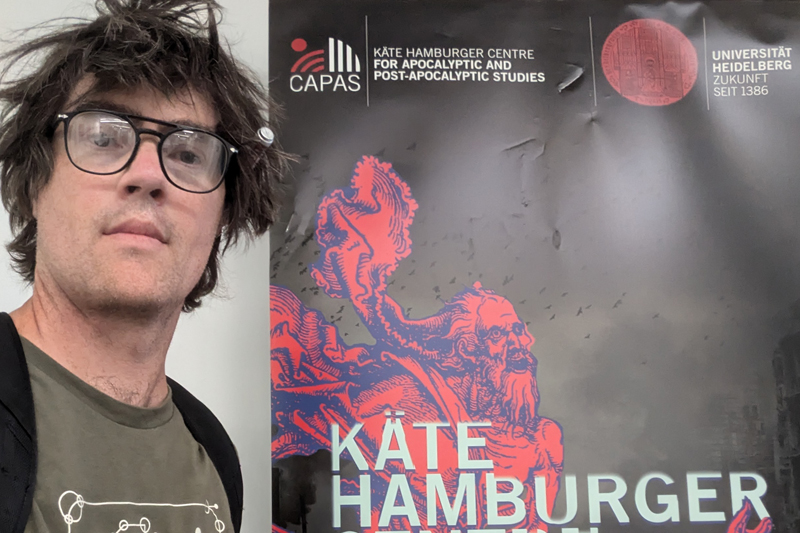The End of the World is Nigh? Researching Apocalypses in Heidelberg
Dr Tristan Sturm

The present age often seems driven by images of its own End. Technological futurists foresee transformative singularities of sudden, stunning evolution to whole new species. Political scientists envision the collapse of states, the descent into lawlessness and violence-plagued anarchy, and islands of order only maintained by vigilant defense and aggressive exclusion. Religious leaders condemn whole cultures and flatter the faithful with prophecies of apocalypse, escape (or Rapture), and vengeance. Heath (social) scientists warn of further viral, bacterial, and fungal pandemics to follow Covid-19, all potentiated by ecological despoilation and extractivism. Eco-activists illustrate and embellish scientific predictions with warnings of catastrophic climate change flooding major cities, wreaking havoc with intensified storms, shutting down ocean conveyor belts, and driving massive numbers of species into extinction. Radical political theorists mock capitalism for the unsustainable excesses and contradictions driving it towards its downfall. Hollywood movies draw upon each of these and repeatedly rehearse and sell us the different visions of our End. We live in an age of variegated and competing apocalypses.
Over the summer, I spent four months exploring these anxious futurities at the University of Heidelberg on a fellowship with the Centre for Apocalyptic and Postapocalyptic Studies (CAPAS). Along with 11 other fellows from across the globe and representing disciplines as diverse as Robotics and Outer Space Technologies, Security Studies, Literature, Philosophy, Architecture, and Geography, we were tasked to challenge and make sense of the foreclosed future-present tense we seem to live in and imagine open worlds and other possibilities.
While there were fellows who work in religious studies, the centre challenged the traditional disciplinary boundaries of apocalypse to theorize our End in a crucible of transdisciplinary thought. As their website outlines, “CAPAS employs a transdisciplinary research approach toward the production of a differentiated description of radical changes and breakdowns in the past and present. Furthermore, the Centre aims to explore, understand and challenge the reactions to apocalyptic scenarios as well as post-apocalyptic visions of the time after the catastrophe taking into account their respective historical and cultural contexts.”
I found my time at CAPAS very productive, and was able to complete a number of articles/book chapters and two books, 1. Apocalyptic Conspiracism: The Geopolitics of American Evangelicalism in an Age of Climate Crisis w/ Tom Albrecht (Bloomsbury 2024); and 2. The Bloomsbury Handbook of Millennialism and Apocalypticism edited w/ Andy Crome (Bloomsbury 2025). The latter volume is a collection of over 30 chapters from the world’s leading writers on apocalypses. I have been invited to return to CAPAS as a fellow for June and July of 2025 to complete further research projects.
The University of Heidelberg is among the oldest and top ranked universities in the world, the third university established by the Holy Roman Empire. The Centre is well funded by the German Ministry of Education and situated in the leafy Neuenheimer feld area. I highly encourage anyone interested in these questions to apply to their well-paid fellowship programme.
For more information on their fellowship programme, see here.

